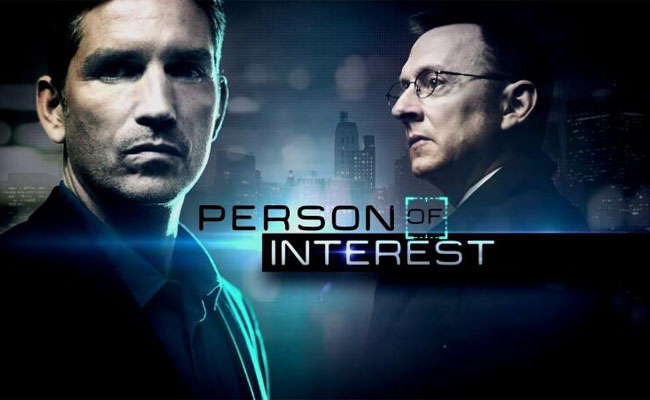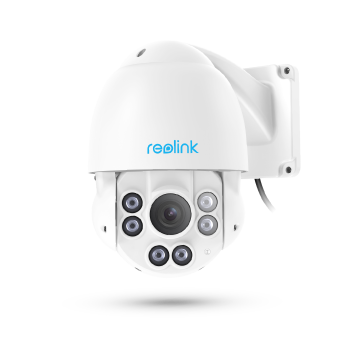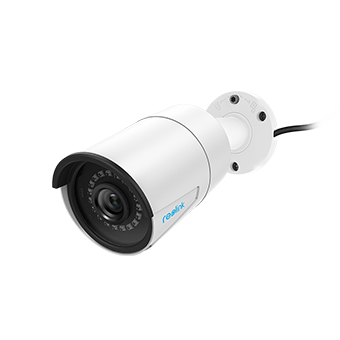"Person of Interest": Understanding Video Surveillance in Public Places and the Privacy

“You are being watched.”Just like the opening narration of “Person of Interest” says, we are living in light of government video surveillance programs. In the “public surveillance pros and cons” debate, surveillance camera privacy issues have drawn more and more attention. Public/national security VS personal privacy has also aroused heated discussion.
Are public surveillance cameras invasion of privacy? Is it worth sacrificing our privacy to get public security in the Post-Snowden era? How do we understand the relationship between public CCTV surveillance and personal privacy? What should be the proper balance between individual liberties and public safety?
Part 1: Do Public Surveillance Cameras Invade Our Privacy?
Privacy in the age of video surveillance age has been challenged. In “Person of Interest”, Harold Finch, a reclusive billionaire, develops the “Machine”, an artificial intelligent system, which analyzes video surveillance footage and electronic communications to predict violent crime. Everybody, therefore, is under monitoring of the “Machine”.
Though the Machine is still more science fiction than science fact, the real meaning deep behind the Machine is very real indeed, such as its use of video surveillance and facial recognition to track down criminals.
Public security camera statistics show every year more and more security cameras are placed to enhance safety in the US, the UK, Canada, France, Australia, Germany, etc. Panoramic security cameras or PTZ cameras are put in a crossroad, in a retail store, museums, restaurants, and other public places.
PoE Waterproof PTZ Security Camera
5-Megapixel Super HD; 360° Pan & 90° Tilt ; 4X Optical Zoom; 190ft Infrared Night Vision; Smart Motion Detection; Remote Live View & Control.
Does it really matter that we are being watched in various public places, even having little knowledge about who is actually behind these cameras?
Truly, we’ll feel uncomfortable, when we are observed in stores, in the street, in elevators, in restaurants, at ATM's, in schools, etc., even if these security cameras are put in the name of our personal safety and public order. Sometimes we are just like “criminals” in a video surveillance world, wondering how many times we are caught on camera per day. Pretty ironic, isn’t it?
We do expect some degree of privacy and secrecy. It is reasonable for us to expect that we’ll not be secretly recorded or supervised remotely. Moreover, we don’t want our conversations with friends and family to be revealed, and our images shown up in front of the public, which is embarrassing. So, in this aspect, surveillance cameras, especially hidden cameras, in public places, are considered a potential threat to privacy.
Part 2: Security over Privacy? Should We Sacrifice Part of Our Privacy to Get Security?
The billionaire inventor in the TV series “Person of Interest” recruits an ex-CIA agent and a couple of NYC cops to use the Machine to stop criminals in their tracks and save potential victims before it’s too late.
As normal citizens, how should we respond to the widely use of video surveillance in public places and government video surveillance programs? And how do we weigh the importance of personal privacy and public/social safety.
To choose personal privacy, or to choose security, that’s the question. And what do most people think of the relationship between public CCTV surveillance and privacy?
Actually the conflict between civil liberty/privacy and public surveillance/security has long existed. We didn’t realize our privacy was challenged until the Snowden incident. Then we start to be more aware of the privacy and liberty violation in the Post-Snowden era.
“Those who would sacrifice liberty for security deserve neither.” Benjamin Franklin’s idea of public security and privacy is out-dated in the era with lots of crimes and terrorism.
With the fear of violence and terrorism, we make a compromise on personal privacy and freedom to get a sense of security. A survey shows that up to 47% of Americans feel less safe since 9/11. This is the reason why most of us are willing to sacrifice part of our personal privacy and civil liberties to get peace of mind in public areas. And this also explains the attitude of the public’s attitude in “Person of Interest” when realizing the existence of the “Machine”.
Then, does this “privacy gives up to safety” choice make sense? How about the effectiveness of video surveillance in public places as a crime deterrent?
Police organizations point to these high-tech tools as one of the big reasons why violent crime has significantly declined in the past few decades. According to the FBI, the national homicide rate in 2014 was the lowest it’s been since 1963. Assaults and rapes have also gone down in that period.
Public security cameras and video surveillance do play a role in solving violent crimes and preventing attacks. Thanks to video cameras in a department store, it only took three days for the FBI and local police officials to release the blurry shots of Boston Marathon bombing suspects.
Your Best Security Camera or Security System Solutions; Plug and Play; 5MP/4MP Super HD; Smartphone Remote Access; Night Vision & Motion Detection
Part 3: Is It Possible to Achieve the Balance Between Public Security and Personal Privacy?
No doubt that there is no expectation of privacy in public. And government and officials who are for the video surveillance in a large scale argue that, there would be no privacy rights violation if everyone can behave himself while in public places.
But what concerns us most is that, the lack of legislation for public video surveillance will lead to surveillance systems abuse. A police lieutenant in Washington, D.C. once attempted to use information collected from video surveillance outside a gay bar to extort thousands of dollars from closeted married men.
We can accept being video taped in public places, but we care much about who is actually behind the camera, who have access to the video tape, and how the video will be used.
Strict Public Video Surveillance Laws/Guidelines are Important
To protect public security as well as privacy, we should call for standard and strict public surveillance laws, which may vary from one state to another. Video surveillance laws in California may be different from that in New York. But one of the commonplaces is that local courts, judges and local authorities should set rules on where to place surveillance cameras in public (workplace included), and limits on the use and collection of video surveillance evidence captured by public security cameras.
At the end of “Person of Interest”, Finch and Reese were considering turning off the Machine. But In reality, who will turn off the “Machine” - public security cameras - for us? The dilemma of pubic video surveillance is still in front of us and will be for a long time.
We are being watched. What we can do at the moment is, taking care of our personal behavior in public places, and seeking for the protection of public surveillance laws.
Search
Be in the Know
Security insights & offers right into your inbox


